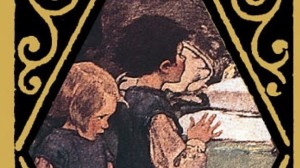 https://www.yahoo.com/movies/the-giver-author-cameo-well-never-get-to-see-92778011922.html
https://www.yahoo.com/movies/the-giver-author-cameo-well-never-get-to-see-92778011922.html
Scroll down to see the new trailer!
And from Comic-Con 2014
Bridges said he had fought to produce the movie for nearly two decades, acquiring the book’s film rights a full 18 years ago. He told the crowd that he wanted to make a film his kids could watch. He originally intended to also direct the book’s adaptation and cast his father Lloyd Bridges in the role of The Giver. “That controversy I think scared some financiers away, but it also inspired me, the energy of this thing.”
The Giver takes place in a future society that was rebuilt “from the ashes” of a devastated planet, one without war, pain or suffering but also one devoid of imagination or free will. When 16-year-old Jonas (Brenton Thwaites) is selected by the community to be its Receiver of Memories, his mind is awoken by The Giver (Bridges). Meryl Streep co-stars as the Chief Elder, who also serves as the chief antagonist when Jonas attempts to lead a revolt against this manufactured society.
Lowry doesn’t see the Chief Elder as evil, though, citing parallels between art and life: “It’s actually the same thing that happens when people try to ban the book,” she said. “They’re not evil people. They’re people who care about their children and want to protect their children. I always try to remember that when they write me letters saying, ‘Jesus would be ashamed of you.’







